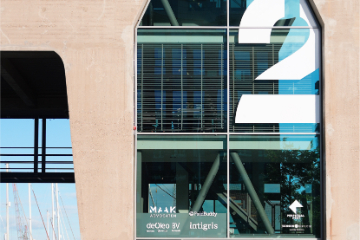
The requirements for a legally valid power of attorney under Dutch law include the existence of a written authorisation that specifies the matters to which it relates and extends to the performance of procedural acts and the exercise of legal remedies. In addition, a copy of the principal’s identity document and, in the case of an appeal on behalf of a legal entity, an extract from the Commercial Register showing who is entitled to appeal as the (ultimate) managing director must be submitted. If not, this may lead to uncertainties about the power of attorney.
In general, this extract must not be more than one year old. A certificate of inheritance may also be required. A power of attorney is the authority granted by one person to another person to carry out legal acts on their behalf. However, it is not possible to use a power of attorney under Dutch law to authorize another person to exercise internal powers of legal personality. For the validity of certain legal acts, such as pledges, it is necessary that the date of the deed in which the power of attorney was granted is certain, which may be proved by registration of the deeds or otherwise.
Creating a valid Power of Attorney under Dutch law requires specific steps and careful consideration. It is essential to fully understand the scope and responsibilities embodied in this legal document. As you prepare to authorize an agent to manage your personal, financial, or business matters, understanding the different types of Power of Attorney and the procedures for acquiring one is paramount.
Key Takeaways
- A valid Power of Attorney (PoA) under Dutch law must be meticulously detailed and notarized to ensure legal validity.
- The Power of Attorney grants the agent authority to manage personal, financial, or business affairs.
- Clearly defining the agent’s actions and any restrictions is crucial for protecting the principal’s best interests.
- Legal authorization ensures the agent acts according to the principal’s preferences even after loss of capacity.
Kinds of Power of Attorney under Dutch law
Under Dutch law, several types of Power of Attorney cater to distinct circumstances and needs. When setting up a Power of Attorney, you can choose from various options designed to meet your unique requirements.
For broad authority, a general Power of Attorney grants your agent extensive powers over a wide range of matters. This includes management of financial affairs, property transactions, and legal representations. It’s ideal when you need thorough support.
In contrast, a special Power of Attorney limits the agent’s authority to specific actions or tasks. This is suitable for one-time transactions or tasks such as managing a retirement account. The agent’s authority is restricted to the specified areas.
A lasting Power of Attorney, also known as an Enduring Power of Attorney, remains valid even if you lose mental capacity or become incapacitated. This guarantees continuity in decision-making, even when you can’t act personally. This option is particularly useful for ensuring long-term representation and protection.
Understanding these options is essential in selecting the Power of Attorney that best suits your needs and ensures the attorneys’ authority aligns with your preferences.
Insurance After Loss of Capacity
If you become mentally incapacitated, make certain that your Power of Attorney for insurance matters is properly notarized to maintain control over your insurance policies. This document should clearly outline the authority granted to your agent or attorney-in-fact to manage your insurance claims, policy changes, and premium payments.
When you’re no longer able to personally manage your insurance matters, your appointed Power of Attorney will guarantee that your best interests are represented. This is vital as the Power of Attorney will make important decisions on your behalf. For instance, they may need to file claims, modify policies, or handle premium payments.
Regularly reviewing and updating your Power of Attorney can ensure that it accurately reflects your evolving needs and preferences.
A valid Power of Attorney for insurance matters under Dutch law is more than just a document; it’s a safeguard against potential administrative and financial challenges. By having a well-drafted and notarized Power of Attorney in place, you can have peace of mind that your insurance matters are in capable hands even when you’re unable to manage them yourself.
Acquiring a Power of Attorney
To obtain a Power of Attorney in the Netherlands, ensure that a meticulously detailed document is prepared by a notary public, who must include the specific powers you intend to grant your agent. This document legally authorizes someone to manage your affairs on your behalf, whether it’s for personal, financial, or business matters.
Notarization is a vital step, ensuring the document’s legal validity by having the principal sign it in front of a notary public. This notarization process varies depending on the type of Power of Attorney involved, as additional witnesses may be necessary.
Following these steps guarantees a valid Power of Attorney that respects your choices and secures your interests, even when you’re unable to act.
Common Legal Mistakes
Several legal errors can invalidate a Power of Attorney or lead to unintended consequences. To safeguard the validity of your Power of Attorney, you must avoid common legal mistakes. Here are several essential points to ponder:
- Failing to Notarize: Not having the document notarized may render it invalid under Dutch law, which could lead to serious legal complications.
- Choosing the Wrong Agent: Appointing an untrustworthy or incapable agent can result in legal disputes and jeopardize your assets.
- Ignoring Legal Requirements: Neglecting to fulfill necessary legal requirements or providing inadequate instructions in the document can compromise the legal standing of your Power of Attorney.
Dutch law firm specialized in power of attorneys
For any legal inquiries or support in the Netherlands regarding power of attorneys under Dutch law, please feel free to contact our adept team at MAAK Advocaten.







